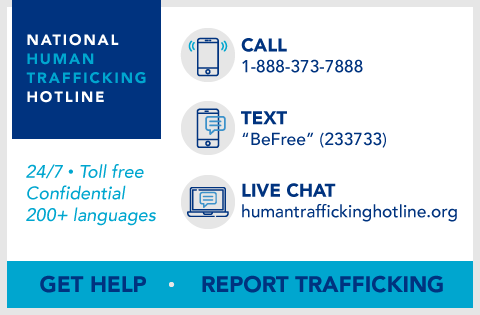SURVIVOR
INCLUSION

In the global fight against human trafficking, survivor inclusion isn’t merely a “nice to have”; it’s essential.”
Why? Because inclusion isn’t just the end goal; it’s the means to achieving better, more holistic comprehensive programs. But how do we encourage inclusion in our organizations? How do we build more holistic systems? To delve into this crucial topic, I had the opportunity to speak with Shandra Woworuntu—a board member of the FBA, a human trafficking survivor, and an advocate for survivor inclusion.
Inclusion represents a profound shift in perspective—from regarding survivors as passive recipients of aid to recognizing them as genuine experts in the field of human trafficking. No one understands the devastating impact of human trafficking better than the survivors themselves. They possess firsthand knowledge of how trafficking has affected their communities, and them as individuals.
Shandra emphasizes, “Inclusion entails ethical and meaningful engagement, involving survivors from the initial discussions to the final implementation of any activities related to anti-trafficking programs.” When survivors are engaged at every stage of program and policy design, the benefits are twofold: not only do we develop more effective and comprehensive approaches to combat trafficking, but we also empower survivors to become contributors and stakeholders in the fight against this crime.
But how do we do that well?
Firstly, to truly embrace survivor inclusion, we must view it as an ongoing process rather than a one-time checkbox. Earlier this year, Shandra and the FBA launched a leadership training session, where over the course of 5 weeks, survivors from around the world meet together to gain the soft and hard skills needed to give voice to their experiences and those of their community. Through these sessions “we can help [survivors] to move mentally and physically from a place of being a victim to a survivor, to becoming a leader and an advocate” and by doing so “they can lead themselves, lead their families and advocate for their community”. Drawing upon these personal experiences can be a painful and scary process, but through the trauma-informed practices in these sessions, Shandra helps the participants to recognize their unique position to advocate for change.
Next, we must foster an environment conducive to sharing these experiences. A survivor’s story is deeply personal and often painful to recount. Shandra stresses, “If we do not understand someone’s trauma, we actually will not be able to support their reintegration,” highlighting the importance of empathy. By maintaining a healing-centered workplace (one of the 6 commitments of the Freedom Business Alliance), survivors can feel safe in sharing their experiences. In fact, prioritizing survivor inclusion can itself contribute to a healing-centered workplace, facilitating the individual’s ongoing journey of recovery.
“Our responsibility as a community is to be able to accompany survivors, to help them and support them to survive and thrive”. We must recognize survivors are the true experts in human trafficking response, through leadership training survivors can safely access their expertise and through survivor inclusion and healing-centered environments, survivors can become leaders of the movement as we continue to respond to human trafficking.
Where do we go from here?
Join us at the Freedom Business Forum as we engage in in-depth conversations around survivor inclusion and healing-centered workplaces. Through our workshops and panel discussions, we hope to help our network partners to create more comprehensive and holistic programs.
If you are a business, become a Member of Freedom Business Alliance to gain important resources to help your business become more holistic and inclusive. Within the alliance we advocate for a more just and redemptive world through good business.
If you are a non-profit engaged in the fight against trafficking – email Karen Schmidt at karen@freedombusinessalliance.com and collaborate with our work as an Organizational Partner.
Related Articles
KAREN SCHMIDT STEPS DOWN
The Board of Directors of Freedom Business Alliance announces the upcoming departure of our Executive Director, Karen Schmidt.
A call to address modern labour exploitation
“Forced labour imposes significant economic and social burdens on society as a whole. It not only deprives individuals of their freedom and dignity but also perpetuates cycles of poverty, undermines economic development, and erodes social cohesion.”
MYTH vs REALITY: Debunking the Commonly Held Myths Around Human Trafficking
People often associate human trafficking with Jeffrey Epstein-type figures, fighting against Liam Neeson or a main character in the Sound of Freedom. And while these moments in pop culture did raise awareness for human trafficking in our modern era, they also created a lot of myths in their wake.


